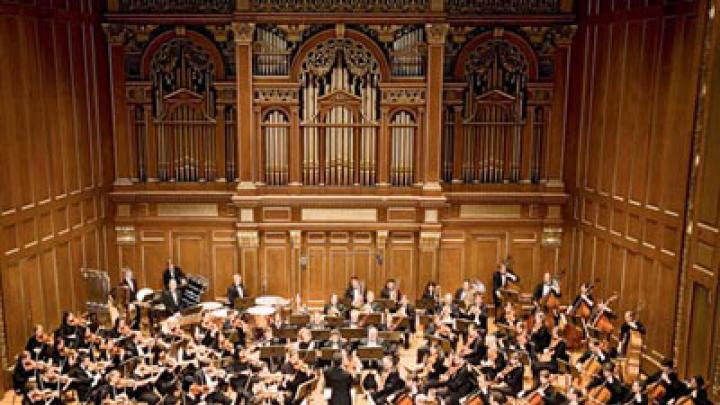Nowadays, no one from Faulkner Hospital bothers Stephen Wright ’64 on Thursday nights. But when he joined the Longwood Symphony Orchestra (LSO) in 1993—before he became Faulkner’s chief of medicine and could pick his hours—he kept a pager on his belt during rehearsals. If it went off, he had to put down his bassoon and take the call. Sometimes, after the three-hour rehearsal, he went back to the hospital instead of going home. “I maintain that you make time for what you want to do,” he says. “And I really want to do this.”
Wright wasn’t the only one to bring a pager to rehearsals. A group of music lovers at the Longwood Medical Area (ranging from students to doctors to chaplains) founded the group in 1982, and about 85 percent of the orchestra’s members still work in healthcare. That doesn’t surprise its president, Lisa Wong ’79, who used to play her violin in both the Harvard-Radcliffe and Bach Society Orchestras. “The kind of dedication and precise training you need to get as a musician,” she says, “translates well into the dedication and precise thinking you do as a medical professional.”
Wong joined the group shortly after its inception, but by 1991 she and a number of other members felt that simply showing up once a week to play music “didn’t seem to be enough.” The LSO therefore decided to organize a symposium with the Boston-based Albert Schweitzer Fellowship, which was launching a program to send medical students to underserved areas of the United States. The two-day event included panel discussions on HIV/AIDS and domestic violence, and culminated in a concert featuring the LSO and cellist Yo-Yo Ma ’76, D.Mus. ’91. For further guidance the group turned to Jonathan McPhee, a sometime guest conductor who was then music director for the Boston Ballet. “When I first came into contact with them, they were just a bunch of doctors playing together for fun,” he remembers. “But whenever you’ve got that many Type-A people in a room, you’re going to have growth.”
The orchestra now partners with nonprofit medical organizations for each of its four yearly concerts. (The nonprofit groups buy discounted tickets and then sell them to earn the difference; concert-goers also can, and do, make larger donations.) To date, the LSO has raised hundreds of thousands of dollars for more than 25 organizations, including the March of Dimes, St. Jude Children’s Research Hospital, and the Boston Health Care for the Homeless Program.
In 2004 McPhee agreed to become the LSO’s conductor (in addition to his Boston Ballet job). “When I took the group on,” he says, “it was really because I believe in the good work they do in the community and I felt I could help them continue to build their model.” The American Symphony Orchestra League recently took note, too, and gave the LSO the 2007 MetLife Award for Excellence in Community Engagement.
This summer, about a third of the group’s 125 members will tour in England, and Wong dreams of someday taking the orchestra to a developing country where the doctors and therapists could practice both their hobby and their professions.
“Sometimes you’re in a scurry over at the hospital, trying to get to rehearsal, and you wonder if it’s worth it,” says Wright. “But then you get there for five minutes, and yup, it was.”








